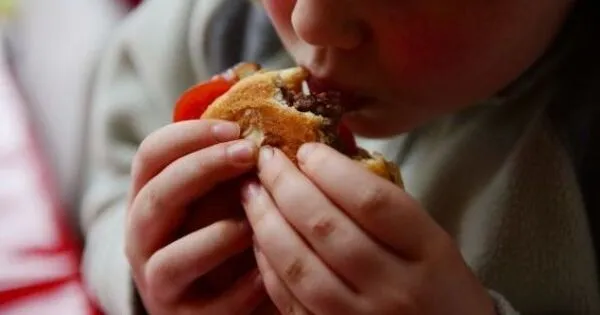Weight loss is not a suitable strategy for most young children because their bodies are still developing. Overweight children should not be put on a diet unless supervised by a professional for medical reasons. A restricted diet may not provide enough energy and minerals for appropriate growth and development. Most very young children should be encouraged to retain their current weight while growing properly in height.
Penn State University researchers discovered that children who had favorable, early contacts with their caregivers – defined by warmth, attentiveness, and a stimulating home environment – had a lower risk of childhood obesity.
“A lot of the conversation about childhood obesity and other health problems revolves around identifying and evaluating risk exposure,” said Brandi Rollins, assistant research professor of biobehavioral health. “In our analysis, we used a strength-based approach. We discovered that early in a child’s life, a supportive family and environment may override some of the cumulative risk factors that children can face.”
Parenting research has demonstrated that these forms of family assets influence children’s conduct, academic success, profession, and, not surprisingly, health. Because the family assets we analyzed are not food or diet-specific, it is significant that these characteristics also protect against childhood obesity.
Brandi Rollins
The study, “Family Psychosocial Assets, Child Behavioral Regulation, and Obesity,” recently appeared in the journal Pediatrics. In the article, Rollins and Lori Francis, associate professor of biobehavioral health, analyzed data from over 1,000 mother-child pairs and found that children’s early exposures to family psychosocial assets — including a quality home environment, emotional warmth from the mother, and a child’s ability to self-regulate — reduced the risk of developing childhood obesity.
These variables were protective even when children encountered familial hazards for obesity, such as poverty, mother depression, or living in a single-parent household.
“Parenting research has demonstrated that these forms of family assets influence children’s conduct, academic success, profession, and, not surprisingly, health,” Rollins said. “Because the family assets we analyzed are not food or diet-specific, it is significant that these characteristics also protect against childhood obesity. It is encouraging to know that by providing a loving, safe environment, we can lower the likelihood of childhood obesity.”
Severe obesity
Children are deemed to have obesity when their body mass indices (BMIs) are greater than 95% of other children their age and gender. There is a great deal of variance, however, in the BMIs of children who exceed the obesity threshold. Children whose BMI is 20% higher than the obesity threshold are considered to have severe obesity.

The researchers discovered that children with early-onset severe obesity did not experience higher levels of familial risk than children who were not obese. Children with extreme obesity, on the other hand, had fewer family assets than children who were not obese or had moderate levels of obesity. More research is needed to determine which factors contribute to the development of extreme obesity and which factors lessen the risk.
“While the data on severe obesity may appear disheartening, they do provide some promise,” Rollins explained. “Some risk factors, such as home poverty, might be extremely difficult to change. Assets, on the other hand, may be easier to construct. People can learn to parent more responsively. It’s reassuring to know that parenting and family are important.”
What parents can do
This work is based on parenting and child development research. One of the family assets examined in the study is responsive parenting, which is responding to children in a timely, sensitive, and age-appropriate manner based on the child’s presenting needs. Penn State’s Center for Juvenile Obesity Research is also investigating how responsive parenting can lower the likelihood of childhood obesity.
This study focused on childhood obesity, however the researchers stated that by learning responsive-parenting practices, parents can improve various outcomes for their children. However, knowledge of responsive-parenting techniques may not directly lead to their application in the home.
“No one can read a vehicle booklet and expect to drive,” Rollins remarked. “Driving is a skill that must be learned and practiced. The same may be said about responsive parenting. To assist families in developing psychosocial assets, such as responsive parenting and a structured home environment, public health officials, doctors, and researchers must work together “She went on. “This has the potential to reduce childhood obesity rates as well as other significant quality-of-life outcomes.”





